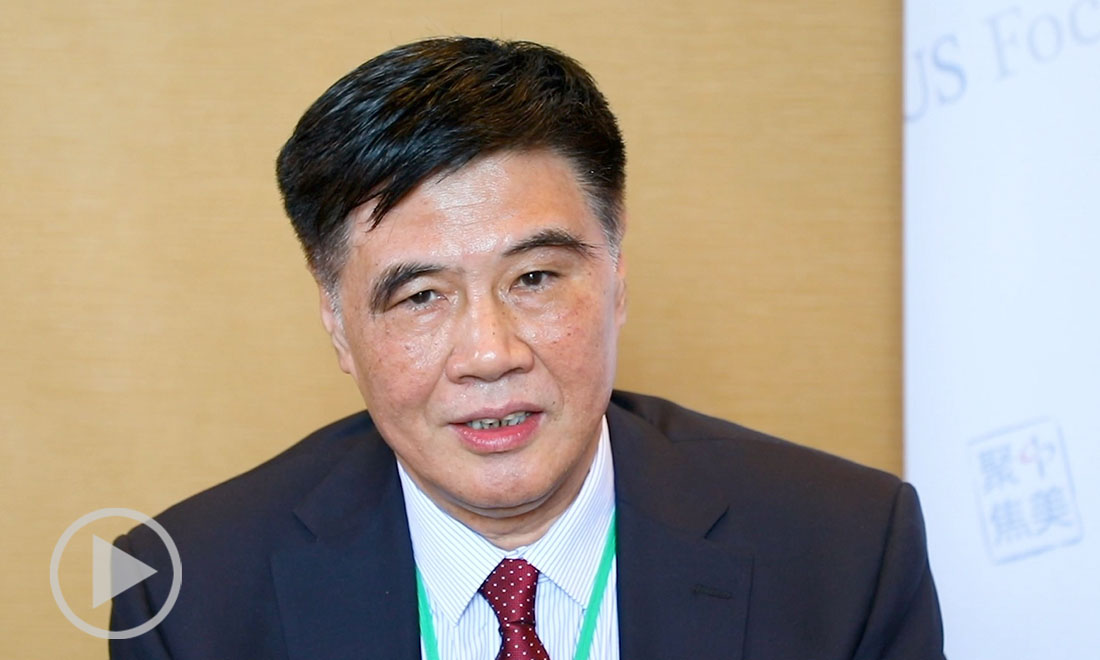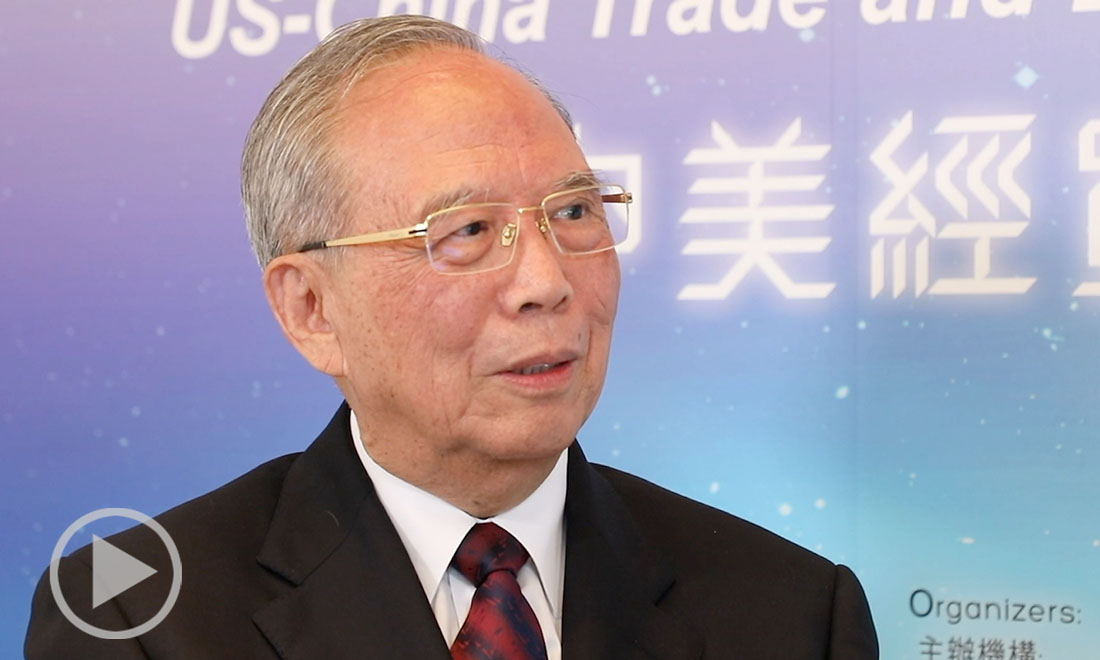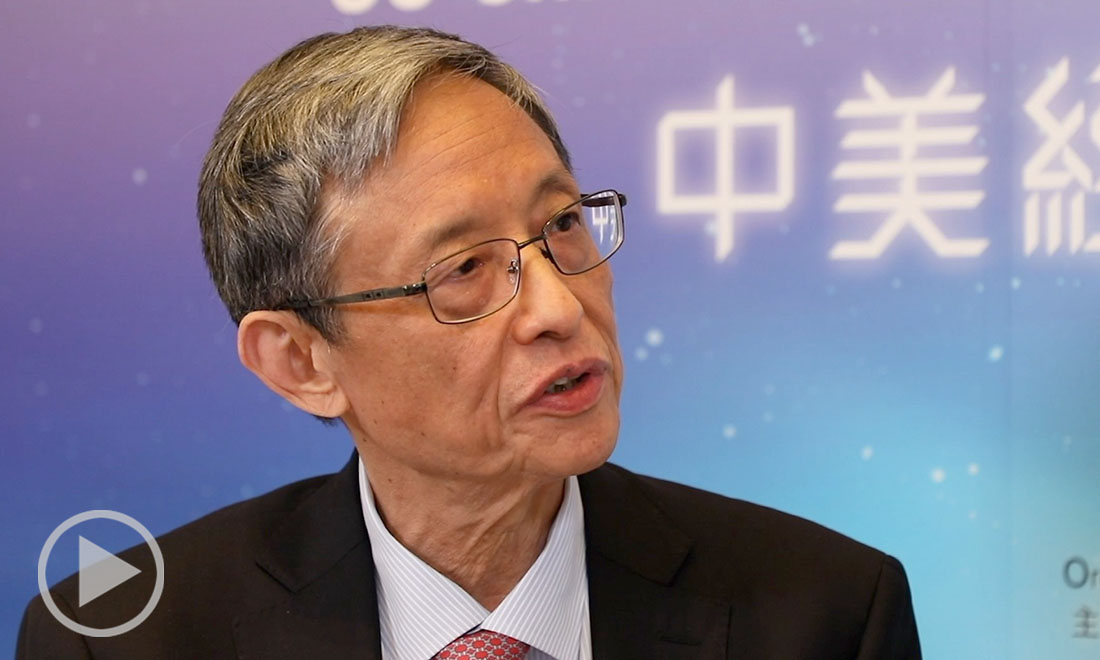Zhou Wenzhong was China's Ambassador to the United States during the administrations of George W Bush and Barack Obama. In this interview with James Chau, he discusses the gaps in understanding between the two countries and their respective approaches to the bilateral relationship. He says a containment policy is not effective with countries such as China and that instead a 'major power relations' could help steer their joint future.
This interview was recorded at the US-China Trade and Economic Relations Forum in Hong Kong on 9-10 July, 2019.
James Chau:
Ambassador Zhou, you were serving in Washington during the periods of the George W. Bush presidency and also the Barack Obama presidency. Some people look back on that with some nostalgia saying it was a very distinct era to the one we have today under Donald Trump. Are they so different?
Zhou Wenzhong:
Actually, when George W. Bush took over, in the early years of his administration, his perspective on China was already that it was strategic economic competitor. So then, what happened was 9/11, so the number one priority for them was to deal with that problem. And so they needed China's support. So his view of China as a strategic competitor did not intensify. Then, since the war against terror has ended, I think their perception has been to focus on the so-called China threat again.
James Chau:
If 2001 and 9/11 was a turning point, not just for the bilateral relationship, but America's approached to the world at large, why not look also at other hallmark events? The 2016 climate change agreement in Paris, the 2008 financial crisis where we saw the countries come together again also with Ebola outbreak, when their support to those affected countries in west Africa really helped transform the response for the better. Are we shortsighted these days? Is the next generation not as long sighted or as visionary as the one that came before?
Zhou Wenzhong:
Let me put it this way. We want to be a friend of the United States as far as the US-China relationship is concerned because that's relationship is very important for China, for the United States and for the world. And so we hope the United States will not misjudge China's strategic intention. We have made it very clear to them that we don't want to challenge anyone and we don't want to replace anyone. So this is all very clear. So what we want is a stable sort of a relationship with the United States, which would bring benefits to both countries and both peoples. But then the problem is their perception of China and so, out of their sudden need for resolving the problem they are confronted with, they sometimes put an emphasis on cooperation and sometimes they try to shift to the emphasis of containment. So I think this is kind of a zigzag course the US-China relationship has been undergoing. So that's a problem.
James Chau:
What happens when you try to contain a culture like China? What has history in the past shown us?
Zhou Wenzhong:
I think they will never go anywhere. That has been their policy: containment, as well as cooperation. But containment has never really got anywhere because China is a major country, one of the major countries in the world, that they can not afford to neglect.
James Chau:
What would you like for the future? Obviously you've had this highly distinguished career in public service and diplomacy. What kind of a world would you like to see and where would this relationship fit within that, given what we see today?
Zhou Wenzhong:
We have made it very clear that we think our view is that the relationship should become a new type of a major power relationship. There should be neither confrontation nor conflict and a mutually respectful relationship. .That's our proposal and that's our hope for US-China relations. Of course, the two heads of state met in Osaka, Japan, and they agreed that the relationship should be based on stability, cooperation and coordination. And so I think now it's important for the two sides, particularly the US administration to implement that understanding between the two heads of state. So let's see what will happen.
James Chau:
Fundamentally, for those opposed this is a good place to close on. There’s always been gaps of understanding. Even back in the days of normalization under Deng Xiaoping and Jimmy Carter, perhaps due to different languages, different cultures, different histories or maybe just different styles of governance. Will there ever be a time where they could meet close enough for it to go forward in a way that perhaps is better than the 40 great years you've just had?
Zhou Wenzhong:
I hope the US-China relationship will renew with the understanding that two heads of state have accomplished. So that's our hope. But we'll see. The fundamental challenges here with us is that the United States really perceives China as a partner rather than a rival.
James Chau:
We can do all the talking, but in fact it will be the children and the grandchildren, those next generations that will really have to carry this mantle forward. They unfortunately won't necessarily have the experience or the 40 years gone by. They wouldn't know necessarily the history. So what would you tell them now, as an experienced diplomat yourself, who's had to explore tricky waters yourself as well? What would you say to a young person coming out of university right now, about what they can do to contribute not just to a stronger relationship with America and with Americans, but also for the world they’re in? China is a very different place right now.
Zhou Wenzhong:
Children are our future. So I think we should to give them the right education they need to learn. They need to learn from history. They need to learn from their teachers. And they also need to learn from their own experiences. And so that's very, very important for the US-China relationship. If we want to have a better future for this relationship, I think we should start doing this right now starting from our children.
James Chau:
Actually, that was the last question anyway, so all I have to say is Ambassador Zhou, thank you very much.




